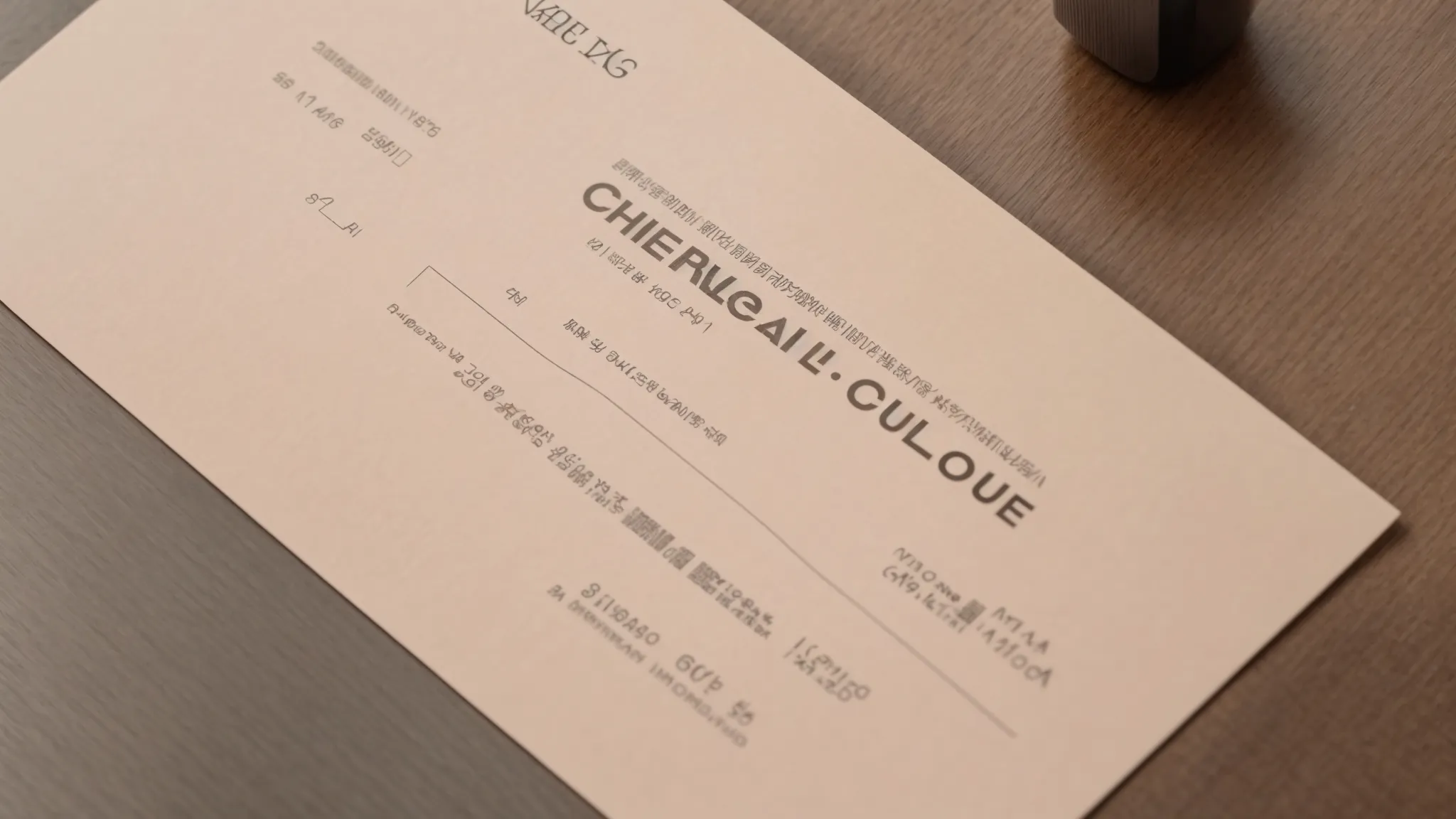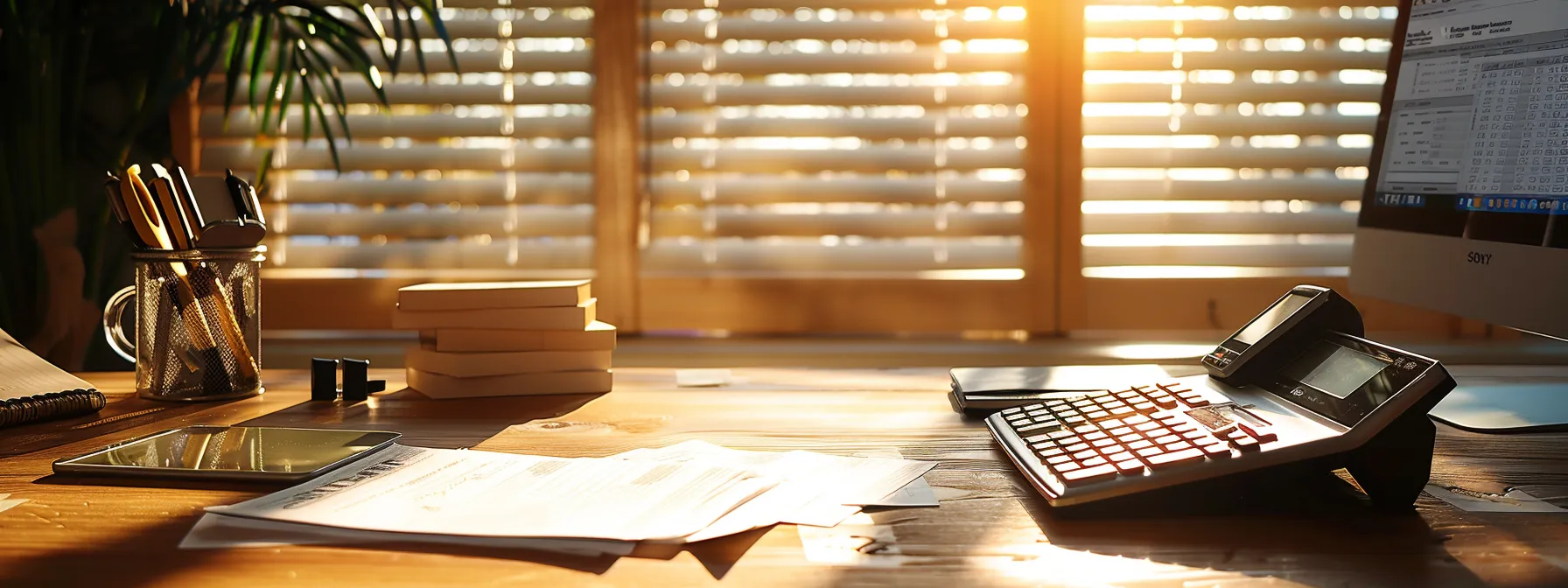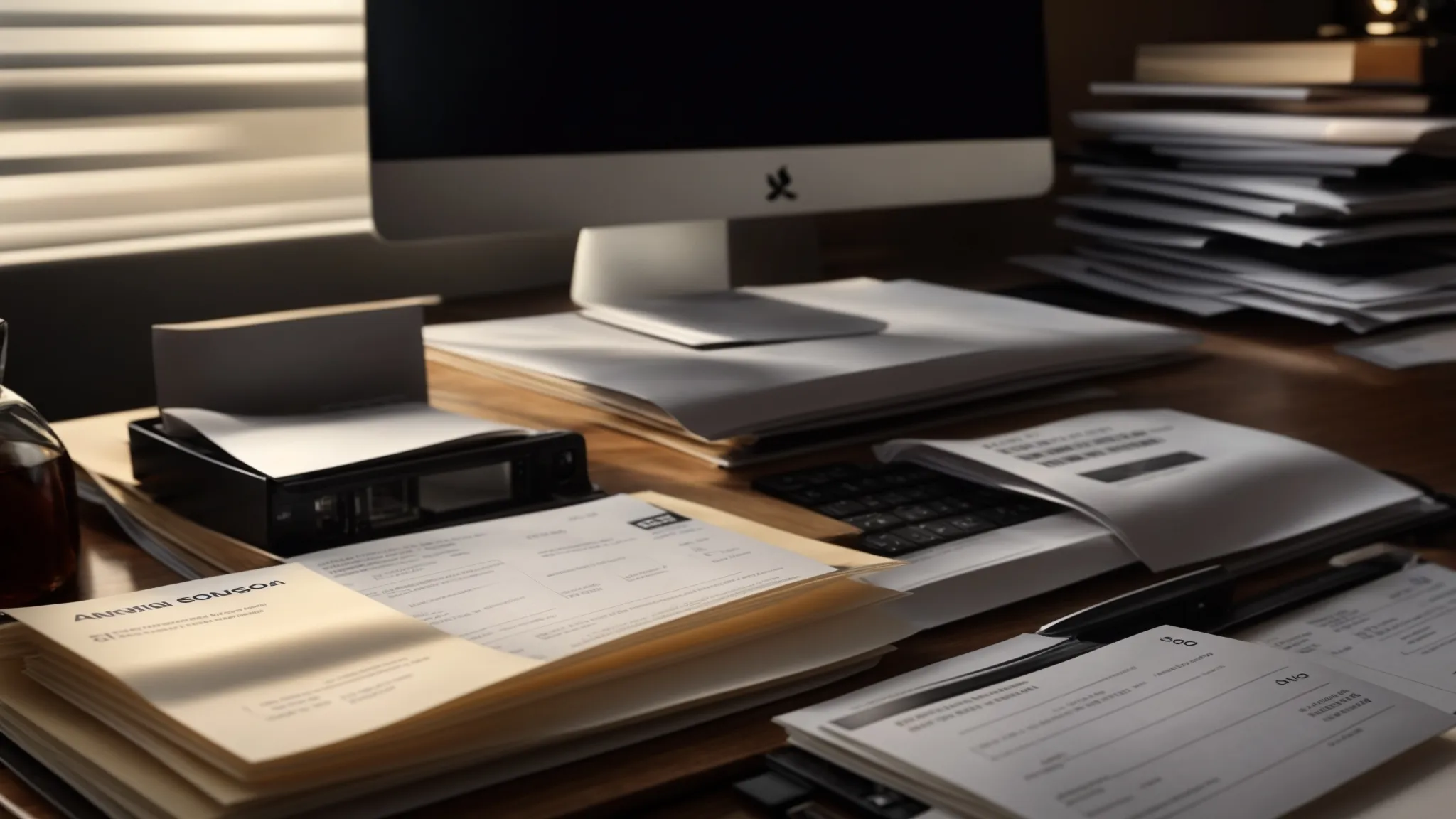Choosing between personal and business cheques can be confusing, especially when both serve distinct purposes. Understanding the differences is essential for making effective financial decisions. This article will explore key differences, benefits of each type of cheque, and practical tips for selecting the right one for your needs. By the end, readers will have clarity on which option best suits their financial activities, ensuring security and compliance with ACH network standards. Ultimately, this knowledge will simplify the process to order business checks or manage personal transactions effectively.
Understanding the Key Differences Between Personal and Business Cheques

Personal cheques, typically linked to a personal checking account, serve individuals for day-to-day transactions. These include payments for bills or cash withdrawals. In contrast, business checks are designed for companies, such as limited liability companies, facilitating payments to vendors and employees. The formatting, liability, and security features differ significantly between the two. Understanding when to opt for a personal check over a business cheque is crucial for effective financial management.
Defining Personal Cheques and Their Common Uses
Personal cheques are associated with personal accounts and are commonly used for various everyday financial transactions. They allow individuals to make payments for bills, purchase goods, or withdraw cash directly from their bank accounts. Unlike wire transfers, which provide immediate access to funds, personal cheques often take a few days to clear, requiring careful tracking in accounting software to ensure accurate financial management.
These cheques typically feature unique security elements, including watermarks and distinct colors, to deter fraud. When mailing personal cheques, individuals often use an envelope to ensure privacy and security during the transaction process. By leveraging personal cheques, individuals can maintain better control over their finances while also establishing a history of payments that may be useful for budgeting purposes.
Defining Business Cheques and Their Common Uses
Business cheques are specifically designed for use by companies and organizations. They provide a secure method for business owners to make payments to vendors, employees, and service providers while maintaining clear financial records. Unlike personal cheques, business cheques often incorporate additional security features, which are crucial for preventing fraud and protecting the company’s assets. These cheques also often include distinct elements such as a business name and logo, enhancing their professionalism and credibility when interacting with customers.
In many cases, business owners may choose to use ACH (Automated Clearing House) transfers instead of traditional cheques for quicker transactions. However, cheques remain a vital tool for businesses that prefer to keep physical records or send payments by mail. By utilizing business cheques, companies can effectively manage their finances, streamline payment processes, and ensure clear documentation for accounting purposes, making it easier to track expenses and maintain a reliable checking system.
How Formatting Differs Between Personal and Business Cheques
The formatting of personal checks and business cheques varies significantly, impacting their use and security features. Personal checks typically include an individual’s name and address, along with a single signature line for the account holder. In contrast, business cheques feature a company’s name, logo, and multiple signature lines, reflecting the professional nature of transactions and providing greater credibility. This distinction is important for businesses that may require additional documentation, such as those seeking a business loan or managing credit efficiently.
Furthermore, business cheques often incorporate advanced security features to deter fraud and defend against online attacks. These can include holograms, microprinting, and specialized ink, which are less common in personal checks. For small business owners concerned about potential fraud, using a business cheque enhances the protection of their assets and helps maintain clear, detailed financial records. Understanding these formatting differences is essential for effectively managing transactions and protecting one’s interests.
Liability and Security Considerations for Each Type of Cheque
When it comes to liability, business cheques typically provide a higher level of protection compared to personal cheques. This is crucial for companies managing payroll, as any discrepancies can lead to significant financial issues. Business owners can adopt effective check printing practices to ensure that their payroll checks include advanced security features, thereby reducing the risk of fraud.
On the other hand, personal cheques may lack these specialized security elements, making individuals more vulnerable to potential fraud. It’s essential for individuals to carefully monitor their expenses and maintain detailed records when using personal cheques. By understanding these security considerations and the implications for each option, individuals and businesses can make informed choices that protect their financial interests.
When to Choose a Personal Cheque Over a Business Cheque
Choosing a personal cheque is often suitable for individual transactions that do not require the complexities associated with business accounts. For example, when paying for personal expenses such as utility bills or making small purchases, using a personal checking account and its cheques enables individuals to maintain simpler bookkeeping without the need for extensive accounts payable processes. This approach can help manage finances effectively while still allowing for immediate access to funds.
Moreover, personal cheques provide a practical solution for those who prefer not to rely on electronic payments, such as direct deposit options. Individuals who are hesitant about digital transactions might find reassurance in the traditional method of issuing a personal cheque. This allows for direct control of their finances, ensuring that payments can be tracked easily and providing a clear paper trail for any necessary record-keeping.
Personal cheques offer unique advantages that can simplify finances. Understanding these benefits reveals why they are a valuable tool for everyday transactions.
The Benefits of Using Personal Cheques

Personal cheques offer cost-effective and convenient payment methods for individuals managing household finances. They can be particularly useful for paying bills without incurring fees associated with debit cards or business ACH transactions. Suitable scenarios for personal cheque usage include personal expenses and small purchases, providing a straightforward approach for tracking spending.
By incorporating personal cheques into financial management, individuals can efficiently utilize their savings account while ensuring a clear paper trail for future reference.
Cost-Effectiveness and Convenience of Personal Cheques
Personal cheques can be a cost-effective option for managing household finances. By using personal cheques, individuals avoid the fees often associated with business checking accounts and electronic payment methods. This approach helps maintain cash flow while providing a straightforward way to track expenses, essential during audits or financial reviews.
Moreover, personal cheques allow individuals to maintain better control over their interest and spending without the complexity of a business account. This simplified method not only aids in budgeting but also enables users to manage their finances more effectively, ensuring that every transaction is easily documented and traceable.
Suitable Scenarios for Personal Cheque Usage
Personal cheques are particularly useful in situations where individuals need to pay for household expenses, such as utility bills or education-related costs. By relying on checking accounts instead of debit cards or credit cards, individuals can avoid potential transaction fees and maintain better control over their spending. This practice not only simplifies accounting but also helps in building a positive credit score by providing a reliable payment history.
Another suitable scenario for personal cheque usage is making payments to local businesses or service providers who may prefer traditional payment methods. In these cases, using a personal cheque can enhance security and offer a clear paper trail, which might be essential for record-keeping. Furthermore, it allows individuals to manage their finances more effectively from their bank account, ensuring that their transactions are accurately documented and easily accessible for future reference.
Personal Cheques in Managing Household Finances
Personal cheques play a significant role in managing household finances by offering a straightforward and familiar method for making payments. Individuals often use personal cheques for various expenses, such as utility bills, groceries, and local services, allowing them to maintain clear records while avoiding fees associated with a business checking account. This approach can simplify budgeting by providing an easy way to track spending without the complexities of commercial banking services.
Using personal cheques enhances financial control, enabling individuals to allocate funds effectively. For example, when individuals write a personal cheque for a household item or service, they can easily document the transaction for future reference. This clarity not only assists in day-to-day financial management but also supports individuals in tracking their expenses, ensuring they remain within budget, and contributing to better overall financial health.
Personal cheques serve individuals well, providing control and flexibility. Yet, the landscape shifts when it comes to business cheques, promising even greater rewards for small enterprises.
The Advantages of Using Business Cheques

Business cheques provide essential advantages that enhance professionalism and credibility in financial transactions. They facilitate streamlined accounting and record-keeping, making it easier for companies to manage their expenses accurately. By understanding these benefits, business owners can better evaluate the role of business cheques in maintaining clear financial records and ensuring a robust financial management system.
Professionalism and Credibility With Business Cheques
Business cheques significantly enhance professionalism and credibility in financial transactions. They often display a company’s name and logo, which fosters trust and recognition when engaging with clients and vendors. By presenting a formalised payment method, businesses can strengthen their brand image, making it clear that they are serious and reliable partners.
Furthermore, using business cheques creates a sense of accountability in transactions. Customers and vendors have a tangible record of payments, which can help avoid misunderstandings related to financial exchanges. This visibility is important for maintaining strong business relationships and can ultimately lead to more successful partnerships, as parties are more likely to engage with organizations that exhibit professionalism in their payment processes.
Streamlined Accounting and Record Keeping With Business Cheques
Business cheques provide a structured and organized method for managing finances, which is crucial for effective accounting and record-keeping. By using business cheques, companies can maintain clear, easily accessible financial records that streamline the reconciliation process. This efficiency allows accountants and business owners to quickly evaluate expenditures and ensure accurate reporting during audits or financial reviews.
Moreover, the standardized format of business cheques enhances credibility with vendors and clients, as they serve as concrete proof of transactions. This documentation helps in tracking payments and resolving any discrepancies that may arise, fostering smoother business operations. Ultimately, utilizing business cheques enables organizations to maintain a reliable financial management system, supporting their overall business health and success.
Business Cheques for Managing Company Expenses
Business cheques are a practical tool for managing company expenses. They provide a clear and organized way to track financial transactions, enhancing accountability in the payment process. With every payment made through a business cheque, companies maintain documented proof, which is essential for audits and financial reviews, simplifying the reconciliation of accounts.
Moreover, utilizing business cheques helps establish a professional appearance when dealing with clients and vendors. When a business issues a cheque that displays its name and logo, it reinforces credibility and fosters trust. This professionalism, combined with accurate record-keeping, enables companies to monitor their expenses effectively and ensures adherence to budgets and financial goals.
Business cheques hold many benefits, yet not all truths are clear. Let’s uncover the common misconceptions that often cloud the true value of both personal and business cheques.
Common Misconceptions About Personal and Business Cheques

Myths often surround the security of personal cheques, leading individuals to underestimate their effectiveness. Misunderstandings about the requirements for business cheques may also create confusion for companies. Furthermore, clarity regarding the acceptance rates of both cheque types can significantly influence their use. Addressing these topics will help demystify cheque options and enhance informed decision-making for both individuals and businesses.
Myths Surrounding Personal Cheque Security
One prevalent myth regarding personal cheque security is that they are inherently unsafe compared to business cheques. While concerns about fraud exist, personal cheques can be secured effectively through various features, such as watermarks and distinct formatting. Individuals using personal cheques can also apply best practices, like monitoring their bank accounts regularly and using secure mailing methods, to enhance security and feel confident in their choices.
Another misconception is that personal cheques are not taken seriously or accepted by vendors. In reality, many businesses and service providers continue to accept personal cheques as a valid form of payment. Those using personal cheques often find that local businesses appreciate the reliability and accountability of cheque transactions, allowing individuals to manage their personal finances without heavily relying on electronic methods.
Misunderstandings About Business Cheque Requirements
One common misunderstanding about business cheque requirements is the belief that they must contain extensive information or specific formats mandated by banks. In reality, businesses typically need to include basic elements such as the company name, account number, and a signature to validate the cheque. Each organisation can tailor its business cheques to meet specific branding needs, like including a logo, which enhances credibility without complicating essential requirements.
Another misconception is that businesses must choose only specific cheque printers or adhere strictly to their bank’s services. In fact, companies have the flexibility to source business cheques from reputable printing companies that comply with Canadian Payments Association standards. This allows firms to select features that best suit their operations and security needs, ensuring they effectively manage payments while maintaining proper documentation for expenses.
Clarifying the Differences in Acceptance Rates
Acceptance rates for personal and business cheques can differ significantly based on the recipient’s preferences and policies. Many local businesses and service providers continue to accept personal cheques, viewing them as reliable forms of payment. In contrast, larger companies often prefer business cheques due to their enhanced security features and professional appearance, which can instill greater confidence in their clients and partners.
Understanding these differences allows individuals and business owners to make informed decisions when selecting a payment method. For example, while personal cheques may still be welcome at smaller establishments, business cheques can be essential for maintaining clear financial records and ensuring smooth transactions with vendors. This knowledge equips users with the ability to choose the appropriate cheque type based on their specific payment scenarios.
Understanding common misconceptions about cheques can clear the fog. Now, let’s look at practical tips that will guide you in choosing the right type of cheque for your needs.
Practical Tips for Choosing the Right Type of Cheque

When deciding between personal and business cheques, it is vital to assess the nature of expenses, ensuring they align with the appropriate cheque type. Evaluating the recipients’ preferences can significantly impact payment acceptance and processing. Additionally, considering long-term financial tracking and accountability will help establish a reliable record-keeping system. These factors guide individuals and business owners in making informed choices.
Assessing the Nature of Your Expenses
When determining whether to use a personal or business cheque, individuals and business owners must first assess the nature of their expenses. Personal cheques are often best suited for everyday transactions, such as paying utility bills or purchasing household items, where the amounts are typically smaller and do not require extensive accounting documentation. For smaller expenses, utilizing personal cheques can simplify financial management and reduce potential fees associated with business accounts.
Conversely, business cheques are ideal for larger transactions or any payments involving vendors and employees, where robustness and professionalism are essential. For example, a company issuing invoices or salary payments will benefit from the credibility and security features associated with business cheques. By evaluating the scale and purpose of their expenses, business owners can make informed decisions that align with their financial management strategies.
Evaluating the Recipients’ Preferences and Needs
Understanding the preferences and needs of cheque recipients is essential when determining whether to use personal or business cheques. For example, local service providers may be more receptive to personal cheques, especially if they operate on a smaller scale and appreciate the trust built through personal interactions. In contrast, larger organizations generally prefer business cheques due to their formal appearance and enhanced security features, which instill confidence in the transactions.
Moreover, evaluating the payment context helps tailor the choice of cheque type. If a payment involves a freelance contractor or a vendor requiring a formal payment record, a business cheque may be the better option for maintaining clear financial documentation. Adapting the payment method to align with the recipient’s expectations can streamline transactions and foster strong business relationships.
Considering Long-Term Financial Tracking and Accountability
When considering long-term financial tracking and accountability, it is vital for both individuals and business owners to recognize the impact of their cheque choice. Personal cheques are useful for straightforward household expenses, allowing individuals to monitor their spending with less complexity. However, as responsibilities grow, utilizing business cheques appears more advantageous since they provide a structured format that simplifies record-keeping and encourages better financial oversight over time.
Maintaining detailed financial records is crucial for effective budgeting and ensuring accountability in financial matters. Business cheques, with their professional appearance and enhanced documentation capabilities, serve as reliable proof of transactions, making it easier for companies to track expenses and report findings during audits. For long-term financial health, selecting the appropriate type of cheque can significantly improve the ability to manage finances and foster accountability, whether for personal budgeting or business expenditures.
Now that the options are clear, it is time to make a choice. The next steps can shape your business and enhance your everyday transactions.
Conclusion and Next Steps in Decision-Making

Analyzing cheque usage patterns can provide insights into choosing between personal and business cheques, ensuring better financial management. Additionally, exploring resources for further education on cheque management can enhance understanding and efficiency in cheque handling. These topics will offer practical guidance to assist individuals and business owners in making informed decisions that align with their specific needs and goals.
Analyzing Your Cheque Usage Patterns
Understanding cheque usage patterns plays a vital role in determining whether to utilize personal or business cheques. For instance, individuals managing daily household expenses may find that personal cheques streamline their financial transactions, while small to medium-sized businesses often require the professionalism and enhanced security of business cheques for transactions involving vendors or payroll. By examining past payment behaviors, users can identify their most common payment scenarios and make informed choices, ensuring that their method aligns with their specific financial needs.
To gain deeper insights into cheque usage, individuals and business owners should assess their transaction types and the frequency of payments. This evaluation might reveal that personal cheques are sufficient for routine bills and smaller purchases, but when it comes to larger expenses or business-related payments, switching to business cheques enhances accountability and organization. By recognizing these patterns, users can strategically select the appropriate cheque type, ultimately leading to better financial management and smoother transaction processes.
Resources for Further Education on Cheque Management
Individuals and business owners seeking to enhance their cheque management skills can benefit from various resources available online. Websites dedicated to financial advice often provide articles and guides that break down the intricacies of personal and business cheques, helping users understand when to use each type. Such information can clarify common misconceptions and ensure that users make informed decisions based on their unique financial situations.
Additionally, attending workshops or webinars on financial management can offer hands-on learning opportunities. Many financial institutions or local business organizations host sessions that cover cheque management, including security features, accounting practices, and effective record-keeping methods. Engaging in such educational experiences empowers individuals and business owners to navigate cheque usage confidently, ensuring their transactions are secure and well-documented.

